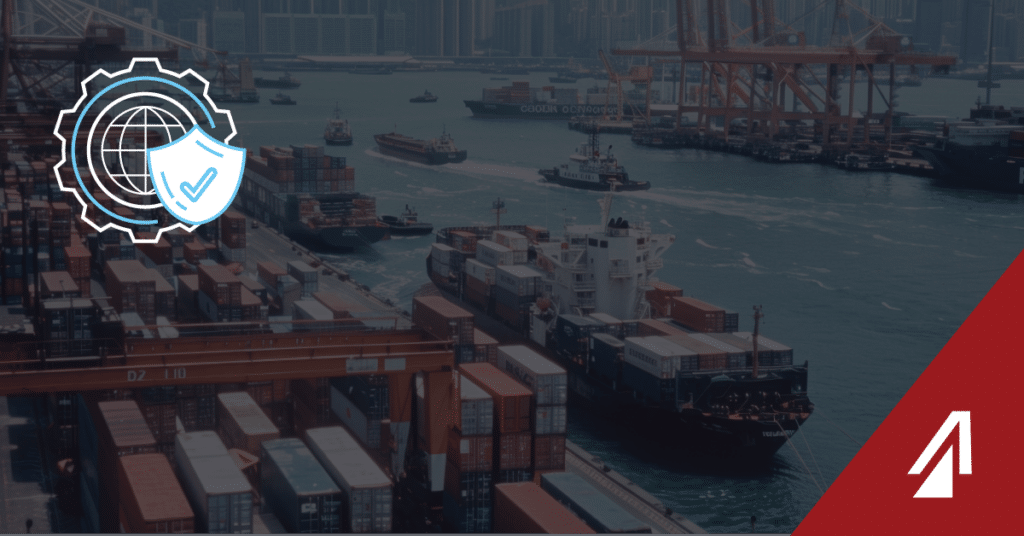The following information was sent out as industry updates:
September 30, 2024
Looming Port Strikes Are on the Horizon Throughout North America
Shippers across the globe have been keeping a close eye on ports in North America, particularly labor negotiations between key unions and the ports. For months, the attention has been on stalled negotiations and a looming strike across the East Coast and Gulf Coast ports set to begin Tuesday, October 1st, if an agreement isn’t reached by midnight the night before. This strike comes after a recent grain worker strike at Canada’s largest port, Vancouver Port, and a strike notice issued on Friday by the Montreal Port Longshoremen’s Union (CUPE Local 375) to begin Monday at 7 am EST.
Three-Day Strike Notice in Montreal
The Montreal Longshoremen’s Union filed a 72-hour strike notice on Friday for two of the Port of Montreal’s four terminals that will begin Monday, September 30th at 7 am EST until Thursday, October 3rd at 7 am EST. The strike affects the Viau and Maisonneuve Terminals, both operated by Tremont Montreal. All mooring services and cargo handling will be suspended during the strike, prohibiting rail, vessel, and truck services, while operations at the other two terminals will continue undisrupted.
The dockworkers included in the strike have been without a collective agreement since the end of 2023, and contract negotiations have been ongoing since January of this year. While talks continue over wages and work-life balance, the strike notice follows a strike mandate approved by the union earlier this month and indicates an escalation between the union and the Maritime Employers Association (MEA).
The ILA Strike is Set to Begin on Tuesday
A large-scale strike, starting Tuesday, October 1st, across 14 major ports down the East Coast and Gulf Coast is highly likely as contract negotiations have been stalled for months. Both sides issued conflicting statements this past week about their willingness to negotiate as the International Longshoremen’s Association (ILA) continues to push for higher wages and a ban on the automation of cranes, gates, and container movements used in the loading and unloading of cargo in the ports. The United States Maritime Alliance (USMX) also filed an unfair labor practice with the National Labor Relations Board in an attempt to push negotiations forward.
Top officials in the Biden administration met with port operators this past Friday, encouraging them to find a solution ahead of the union contract that expires at midnight on Monday. Although there are options for the government to get involved if a deal is not reached, experts indicate that it is unlikely unless the strike continues for several weeks and they are drawn into the standoff.
The strike would affect dock workers in Baltimore, Boston, Charleston, South Carolina; Jacksonville, Florida; Miami; Houston; Mobile, Alabama; New Orleans; New York/New Jersey; Norfolk, Virginia; Philadelphia; Savannah, Georgia; Tampa, Florida; and Wilmington, Delaware. According to industry data, these ports handle more than 68% of all containerized exports in the U.S. and approximately 56% of containerized imports. Analysts at Oxford Economics estimate that a strike would reduce U.S. economic activity by $4.5 billion to $7.5 billion every week it continues. It is also estimated that for every week of the strike, it would take the industry 4-6 weeks to recover fully.
Contingency Plans for East Coast and Gulf Coast Ports
While some companies have been shipping goods early in anticipation of a potential strike, others are waiting to see how the negotiations play out. Certain restrictions have also gone into effect to mitigate the congestion a strike would cause. For instance, CMA CGM (America) LLC stopped accepting any new U.S. Export Rail Intermodal bookings as of September 23rd, 2024. The booking block is in effect for all shipments with a load port impacted by any labor unrest, strike, lock-out, stoppage, or slowdown.
By now, contingency plans have been created in the case that the master contract expires and an agreement is not reached by the deadline.
Guidelines for Our Customers
Within our global forwarding division operating as TOC Logistics, contingency plans are in place as needed. For our Direct Consolidation Services (formerly known as SCN), the following applies:
- Customers who have requested and chosen an alternative option from Direct Consolidation Services (DCS) will have their cargo co-loaded from DEHAM to the closest CFS from door delivery via Canada or the West Coast.
- Our DCS will continue with the same carrier and routing for those who have not chosen an alternative service.
For FCL and our Buyers’ Consolidation Network (BCN), the following applies:
- Cargo will continue in the same routings as per existing rate cards/tariffs
- Customers who have requested an alternative option were provided options primarily via the West Coast, Canada ramps into the U.S., or the use of Mexican trucking into the U.S. border, USELP, or USLRD.
Impact on Ocean Freight Rates
Shippers have seen a recent spike in ocean freight rates as companies prepare for the potential strike. The need to reroute shipments to alternative ports will also certainly impact shipping rates, fuel costs, and shipment delays due to longer transit times. Leading ship operators have announced surcharges in the event of industrial action, although these would not come into effect immediately.
One major shipping company announced that a Work Disruption Surcharge (WDS) would come into effect October 19th for imports to the U.S. Gulf and East Coast from all ports in North Europe, the Mediterranean, Africa, the Middle East, the Indian Subcontinent, Oceania, and Latin America. We have explored several potential solutions and are ready to offer alternative options for rerouting cargo, considering factors such as transit times, costs, and other logistics needs.
Effects on Ground Transportation in the U.S.
As we prepare for the potential strike this week, we also need to consider the effects that the strike may have within our ground transportation network in the U.S. When dockworkers go on strike, cargo remains at the port causing longer wait times and congested port areas for truckers waiting to transport goods inland. We may even see a dip in trucking demand as companies adjust schedules to accommodate delayed shipments or opt for alternative transportation modes, including rail or air freight.
Some shipments may be redirected to ports on the West Coast, Canada, or Mexico, affecting regional demand where volumes could spike, leading to additional congestion issues and limited truck capacity. This may result in new trucking routes and opportunities, but companies also need to consider the effects on transit times as shipments would have to travel longer distances and an increase in fuel costs. These alternatives could also lead to temporary increases in freight rates if a rate contract is not already in place.
Our team continues to watch the latest developments in these negotiations and other supply chain disruptions. We will work diligently with our customers to identify the best solutions throughout this trying period. Our Solutions Spot Quotation team can also assist in providing a spot quotation if required. Reach out to your supply chain representative for any additional information.
Full-Service Air Solutions
with Responsiveness, Trust and Performance

When facing abrupt or unforeseen delays, on-demand air services can be a critical, effective method of moving freight to reach your shipping deadline. It requires having a trusted partner to provide solutions that meet your specific needs and keep you supply chain going. We offer full-service, time-critical logistics and crisis management, regardless of the time of day.
For all your air freight and time-critical needs, please reach out to our 24/7 Time-Pivotal Expedite Business unit at expedite@protrans.com.



